George Benson Breezin’

Overall, I think the jazz police never forgave me for taking George Benson from the jazz area to where he became a pop artist', record producer Tommy LiPuma told jerryjazzmusician.com in 2022. 'I was always a pop music freak, but I was also a big jazz fan.'
But then by its nature jazz is a mutable musical form. Once away from trad jazz, there are all manner of appellations, hybrids and fusions, some occupying specialist niches, others with crossover appeal. Few albums, though, have managed to cross over in as big a way as George Benson's Breezin', released in 1976 and LiPuma's first production for the jazz guitarist and singer.
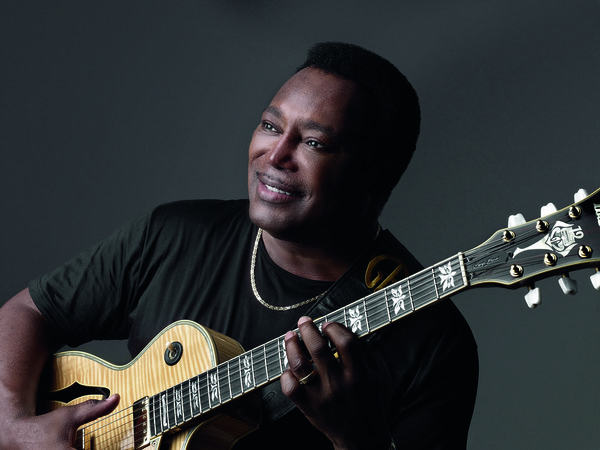
George
Benson
poses for a
promo shot
in 2012
Lead On, Mcduff
Breezin' was jazz enough to top the Billboard jazz charts, but smooth and melodic enough to crown both the Billboard pop and R&B charts too. It was a huge seller, ultimately going triple platinum and yielding two hit singles: the title track, penned by Bobby Womack, and 'This Masquerade', which was released prior to the album. The latter, written by Leon Russell, was recorded by scores of artists, but it was Benson who helped it on its way to becoming a modern standard.
Benson grew up in Pittsburgh's Hill District, a rough neighbourhood that was home to The Crawford Grill, one of the city's premier jazz venues. Here the musicians played on a high stage in the centre of the room, including Chico Hamilton, Dave Brubeck and the legendary guitarist Wes Montgomery.
Benson was a fan of Montgomery, but as a teenager the first guitarist who really moved him was Charlie Christian, who played with the Benny Goodman Sextet. Initially, Benson had no ambitions to play the instrument, but soon took to it and when aged just 19 joined jazz organist Jack McDuff's band.
This turned out to be no straightforward career move, as at the end of their first night on the road, McDuff fired Benson, albeit allowing him to stay until the band reached New York. When McDuff's manager heard this he told him he couldn't fire the guitarist as he made the band sound ten times better. McDuff backed down, leading to Benson making his recorded debut on the 1963 album Brother Jack McDuff Live!.
Big Band Sound
Benson soon established a career as a solo artist and elements of his hallmark style can be heard on his fourth solo album Giblet Gravy from 1968, with its svelte jazz covers of pop songs such as Burt Bacharach and Hal David's 'Walk On By', and Johnny Hebb's 'Sunny', with groovy big band arrangements, cool female vocals and Latin percussion. Benson's guitar playing is lyrical, harmonically adventurous, and at times delivered at dazzling speed.
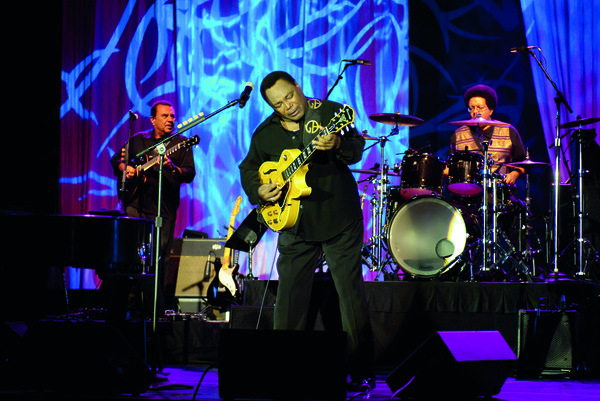
Benson
and
band on
stage at the
Atlantic City
Hilton hotel
in New Jersey
in April 2009
Meeting Miles
He'd assembled a top-quality band, including drummer Billy Cobham, Herbie Hancock on keyboards and bass player Ron Carter from Miles Davis's quintet. Carter told Davis he should listen to this young guitar player from Pittsburgh and Benson was invited to record 'Paraphernalia' on Miles In The Sky, later that year. That tense, taut composition, by saxophonist Wayne Shorter, could hardly have been more different in feel from his own music, but he was invited to do further work with Davis.
Interviewed by Brad Farberman for Tidal magazine in 2020, Benson said his manager vetoed the idea. '[He said] "Everybody at your record company says you're gonna be bigger than Miles". I said, "Man, what fool said that?" because it sounded so irresponsible that somebody would even come up with a statement like that.'
Fab Four Approval
Benson next hooked up with producer Creed Taylor, recording several albums from 1968-76 for his CTI Records, which became known for its polished, smooth jazz sound. Benson covered Beatles tunes on The Other Side Of Abbey Road (1970). 'All the jazz people hated that', Benson told Joe Bosso of Guitar World in 2023. 'But Paul McCartney sent word back to me - "Man, we love what you did with our music".'
On 1972's White Rabbit album, an all-star band contributed to fluid, tasteful extrapolations of pop tunes. These included the title track, which had been a hit single for Jefferson Airplane, and The Mamas & The Papas' 'California Dreaming'. Bad Benson topped Billboard's jazz chart in 1974 and by the time of Good King Bad - released in early 1976 - his rhythms had moved towards funky R&B with hints of disco.
Benson then signed to Warner Bros and for his first album for the label, Breezin', put together a new band, which unusually for a jazz-fusion outfit had two keyboard players: pianist Jorge Dalto, an Argentine who originally played folk music but had moved to America to play jazz; and Ronnie Foster on electric piano and synthesiser.
'His ideas were very bizarre, and I think that's what I appreciated the most', Benson said of Foster later. 'He never played what I thought he was gonna play... and that was valuable, especially for improvisation.'
Breezin' was produced by LiPuma, then the A&R staff producer at Warner Bros. He had been a fan of Benson since seeing him with McDuff, but at the time he hadn't even realised he sang. 'The amazing thing is he left the looking out for the material and the casting of the material up to me', said LiPuma.
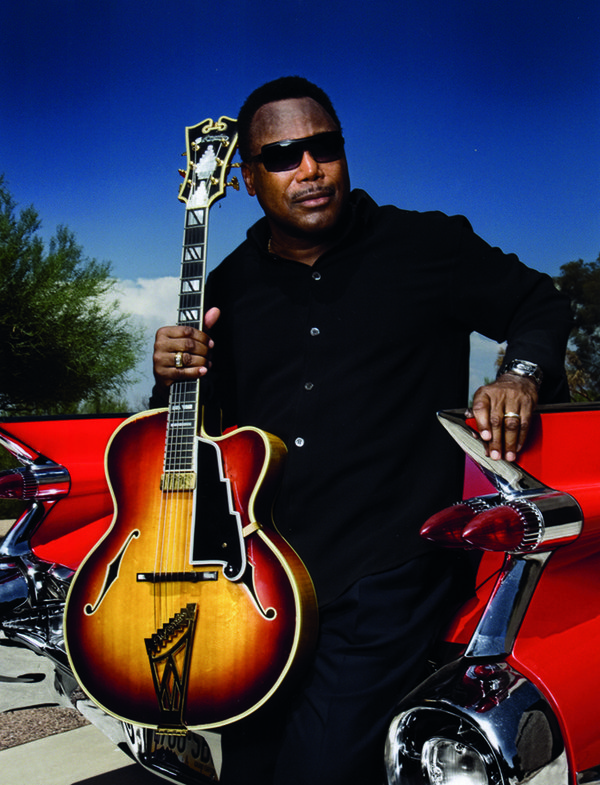
Posing
in 2008
holding a
D’Angelico
New Yorker
model guitar
On The Mic
The producer knew Leon Russell and suggested they try 'Masquerade'. They agreed that for Breezin', Benson need only sing if they found a 'great song'; it's the only vocal on the album and would win him Best Vocal Performance, Male at the 19th Grammy Awards.
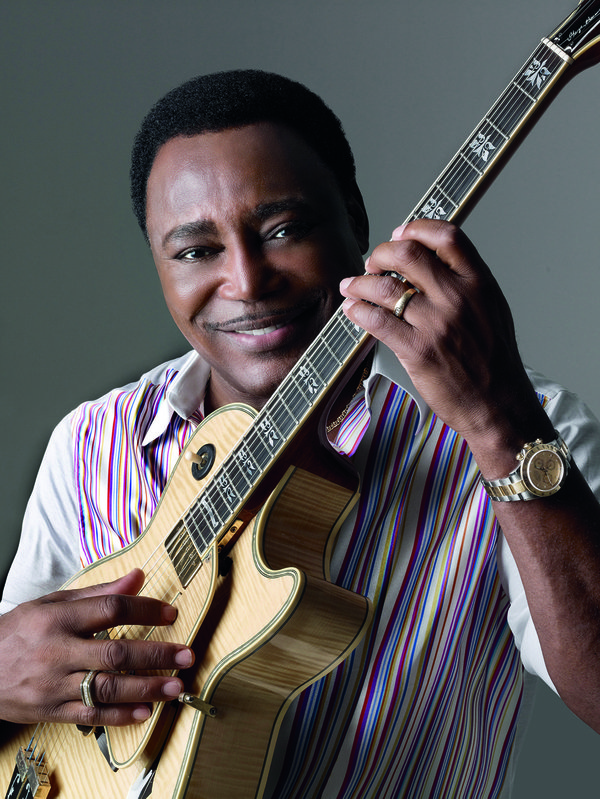 Portrait shot used to promote Benson’s 2011 album Guitar Man
Portrait shot used to promote Benson’s 2011 album Guitar Man
Wonder Stuff
It's an affecting performance, but looking back, the award is also something of a surprise. Benson was pals with Stevie Wonder - he played guitar and sang backing vocals on 'Another Star' on Wonder's Songs In The Key Of Life in 1976 - and on 'Masquerade' his vocal mannerisms sound uncannily like Wonder. One American music critic went so far as to call his performance a 'Stevie Wonder impression', and rather harshly noted that Benson is 'not primarily a singer'. Yet on the full eight-minute album version his unison guitar and vocal scatting is certainly impressive.
Benson's only composition on the six-track album, 'So This Is Love?', is one of its jazzier moments, while 'Six To Four', written by rhythm guitarist and bass player Phil Upchurch, runs through some tricky time changes with Foster given the space to shine with an idiosyncratic Minimoog solo.
The title track became a fusion classic. There's not a great deal of jazz in this gently rippling funky groove composed by Bobby Womack and originally released as a single by himself and guitarist Gábor Szabó in 1970, but this version feels totally at ease with itself. Upchurch's sweet rhythm chords form a simple hook before Benson's lead guitar playing takes over the main melody and the track becomes awash with lush strings.
Benson noted that at the opposite of fusion there were sectarian views on jazz and pop, and that Wes Montgomery had at times been booed for playing a pop song. But none of this bothered him and he went on to make a series of pop albums. Give Me The Night, which was produced by Quincy Jones, climbed its way to No 3 in the Billboard pop chart in 1980 as well as topping the soul and jazz charts, and the title track became an international hit single.
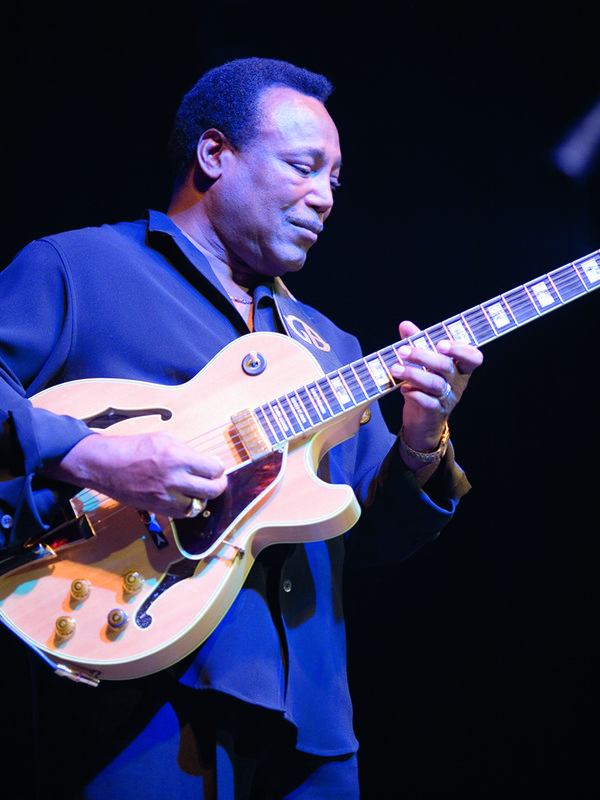
Benson in concert in 2009 at Sportaréna Budapest in Hungary
By George
As well as enjoying a lengthy and successful solo career, Benson has collaborated with Mary J Blige, Al Jarreau, Rod Stewart, Gorillaz and even The Muppets, but has also maintained that he could never let go of being a jazz player. As he said to Guitar World, 'Anytime somebody says, "What's George doing playing this kind of music?" I want to say, 'Well, Why shouldn't I?' I like to challenge myself'.









































